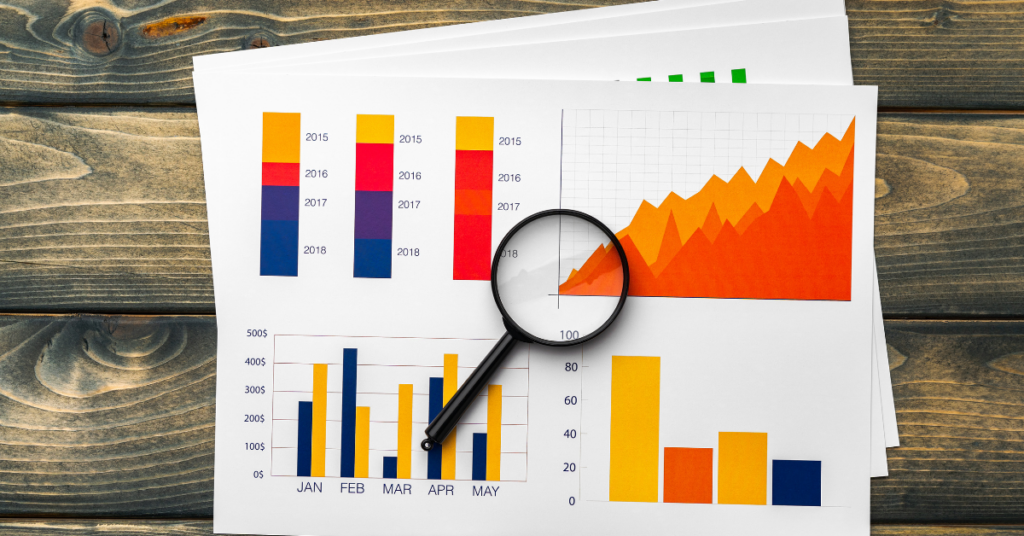What is Financial Analytics? Why is it Useful for Businesses?

According to the U.S. Bureau of Labor Statistics, financial analyst employment is expected to grow nine per cent by 2031, faster than the average for all occupations. But what is financial analytics? Financial analytics dissects financial reports and other data to determine and predict a company’s viability, stability, and profitability. It allows leaders to make the right business decisions. Let’s find out how.
What is Financial Analytics?
Financial analytics seeks to shape business strategy through accurate, factual insight rather than intuition. It provides firms with the tools they need to gain a deep understanding of key trends and take action to improve their performance by providing detailed views of their financial data.
As a subset of business intelligence and enterprise performance management, it affects all aspects of a business and is critical in assisting companies in forecasting and planning for the future.
Why is Financial Analysis Important?
What is financial analytics’ importance, you ask? Financial analytics helps companies discover the risks they face, improve business processes and optimize efforts in the right direction. It helps leaders get visibility into important matters, such as which products are doing well and which sales channels to focus on. It also enables them to take preventive measures rather than waiting until some damage is done.
 Benefits of Financial Analytics
Benefits of Financial Analytics
Financial analytics helps leaders make timely and right business decisions due to the:
- Availability of real-time data and insights
- Easy to consume information that highlights areas requiring attention
- More accurate forecasts
Six Key Financial Data Analytics You’ll Need
All organizations in today’s fast-paced world need financial analytics to stay competitive and sustained long-term. Here are six types of financial data analytics you need to implement in your organization:
1. Cash Flow
Real-time visibility into cash flow helps manage finances better and prevents any last-minute surprises.
2. Customer Profitability
Helps understand the profitability patterns among your customer groups, thus helping you improve the organization’s overall profitability. For example, 20 per cent of your customers may account for 80 per cent of your profit, and you need to ensure the right proportion of efforts are going into fulfilling their needs.
3. Accurate Sales Forecast
An accurate sales forecast is crucial to plan other functions, such as marketing, recruitment, etc., to drive profits. It also helps in managing the ups and downs of businesses.
4. Profitability of Products and Channels
Insights into product-wise and channel-wise profitability help decision-makers allocate appropriate resources to optimize for higher profits and efficiencies.
5. Shareholder Value
It can help build shareholder trust by providing the required visibility into the return on their investment.
6. Leading Indicators
Financial analytics provides leading indicators of the current situation and predicts the direction in which the business is going, both in the long and the short terms.
ALSO READ: How to Get Into the Fintech Space: Here’s What You Need to Know
Financial Analytics Tools
Many software solutions ease the processes in this field. However, some basic tools are needed to carry out financial analytics of organizations of any scale. Here are some commonly used tools:
1. Common Size Statement
It helps identify where a company has applied its resources and in what proportions those resources are distributed. It helps determine what drives a company’s profits and makes comparing it to similar companies easier.
2. Comparative Financial Statements
It helps compare financial statements over a period of time, thus enabling investors to identify the company’s financial trends and take any necessary interventions.
3. Ratio Analysis
This is a quantitative method of analyzing financial statements such as the balance sheet and income statement. It provides insight into a company’s liquidity, operational efficiency, and profitability.
4. Benchmarking Analysis
It involves comparing a company’s business practices and standards with competitors within the same industry. It helps identify improvement areas to drive the financial efficiency of a company.
 Financial Analytics Course
Financial Analytics Course
A financial analytics course is designed for senior finance professionals to start connecting strategic business decisions with financial insights. Most online courses combine hands-on experience with the latest tools and technologies. Some of them also provide networking opportunities. Learn more about this subject from industry experts from the world’s best universities through our online finance courses.
What is Financial Analytics Salary?
As per Glassdoor, the estimated total pay for a Financial Analyst with one to three years of experience is $109,441 per year in the United States. Getting the right financial certifications and networking with industry experts can help you expedite your career growth.
Learn Financial Analytics From Emeritus
Finance remains one of the most attractive fields, with a median annual wage of 1.6 times that of other professions. You, too, can pursue a career in this field or simply hone your existing skills by taking courses from reputed universities worldwide. In addition, online finance and fintech courses at Emeritus cater to finance and non-finance professionals. Check out Emeritus’ extensive finance course catalog here.
Write to us at content@emeritus.org
















